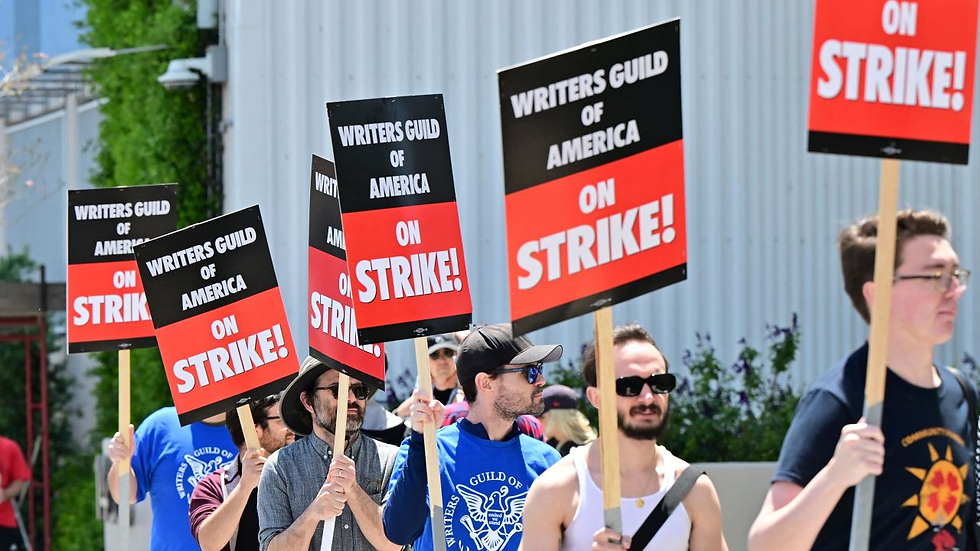Updates on the WGA Strike
- Anjali Kapilavai

- Aug 31, 2023
- 2 min read
Updated: Oct 3, 2023
The Writer’s Guild of America (WGA) is a labor union that comprises thousands of writers who write content for many television shows, movies, documentaries, and other forms of media. The WGA has been on strike since May 2, 2023. On July 14, over 160,000 actors under the Screen Actors Guild and American Federation of Television and Radio Artists (SAG-AFTRA) also went on strike. Many movies and TV shows in production have slowed or even stopped, and reality shows and talk shows are on reruns. The effect of the strikes on California's economy has totaled $3 billion so far, and there is no end in sight. For the strike to end, the Alliance of Motion Pictures and Television Producers (AMPTP) needs to discuss negotiations with the WGA and SAG-AFTRA. However, reports are saying that the AMPTP has been waiting for people to “bleed out” and for those on strike to become desperate (there are no unemployment benefits for people on strike in California).

The main strike issues were pay raises, viewership-based residuals, and guardrails against the use of artificial intelligence to write scripts. These issues were recently discussed on August 4, though many claim this session was unproductive. Previously, streaming projects had fixed residuals, but the WGA is now asking for a “reward” for a higher view count. Viewership transparency is a large issue as the details are not even revealed to the actors, let alone the writers. The AMPTP refused this offer, however. The AMPTP also refused the request regarding AI and offered annual meetings to discuss changes in technology to compensate.
As of August 22, the AMPTP and WGA have met again to discuss a potential 3-year contract in hopes of ending the strike. The WGA quickly critiqued the offer, saying it has “limitations and loopholes and omissions [that] failed to sufficiently protect writers from the existential threats that caused us to strike in the first place.” The AMPTP released the details of the contract soon after the meeting, possibly intending for the WGA to be forced to make concessions. Some improvements from the new proposal are viewership transparency and protection against written material generated by AI.
This strike is a historic occasion, as a double strike like this has not happened since 1960. It has significantly impacted the economy, with a massive effect on California’s economy alone. The film and media industry has been put on pause, causing delays across the board. The one thing that everyone can agree on is that the strike needs to end as soon as possible. However, it also needs to end in a fair manner. Hopefully, an agreement can be reached between the unions and the AMPTP so that writers and actors can get back to work and the public can enjoy new movies and shows.




Comments